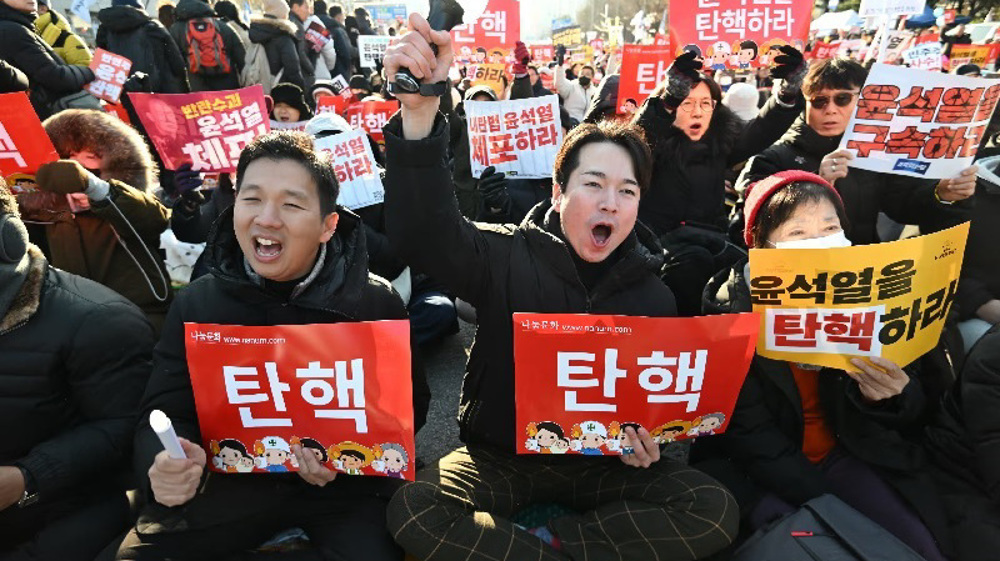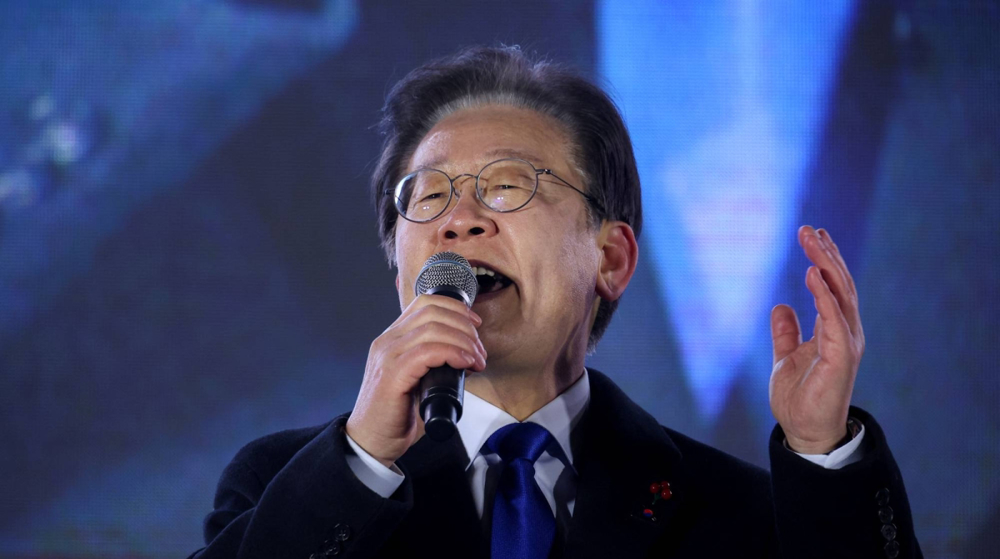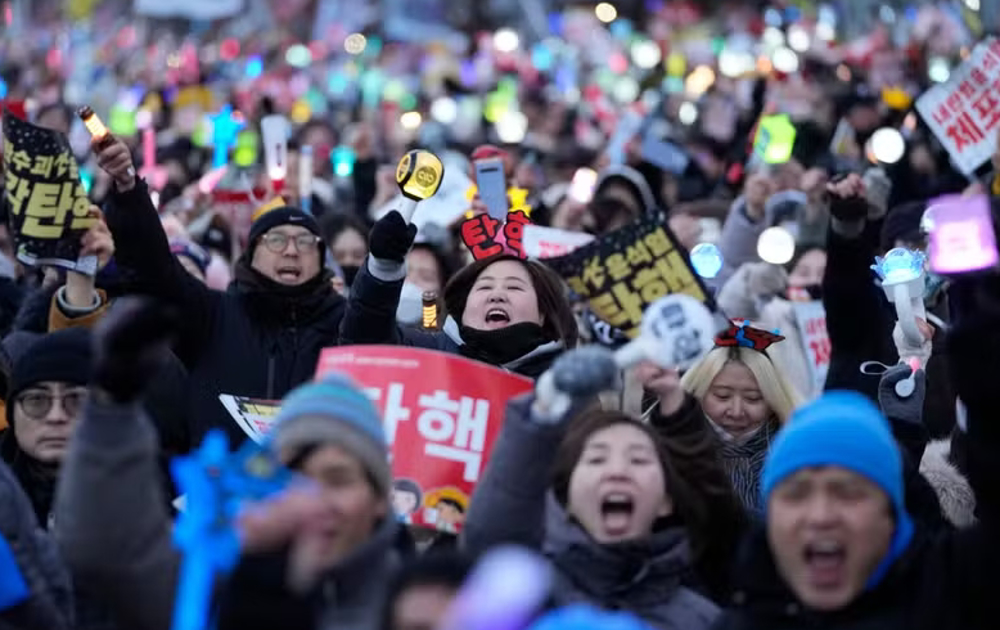Russia says dialogue only way to achieve peace on Korean Peninsula
Russian Foreign Minister Sergei Lavrov says dialogue is the "only possible way" to achieve peace on the Korean Peninsula and that Russia will work to promote the negotiation process to resolve the crisis in the region.
Lavrov made the remarks after talks with his visiting South Korean counterpart, Kang Kyung-wha, in Moscow on Monday, saying Russia and South Korea were united on the need to continue efforts on settling the Korean Peninsula crisis.
"We have paid special attention to the situation on the Korean Peninsula and in Northeast Asia in general. We and our colleagues are united in our understanding that negotiations between all those who participate in settling the Korean crisis should continue,” the top Russian diplomat said.
“Both the Republic of Korea and Russia consider peaceful political settlement to be the only possible way to achieve progress on resolving problems that exist in the subregion," Lavrov added.

The Russian foreign minister also said Moscow has invited Seoul to join a new Russian-Chinese initiative aimed at settling the situation on the Korean Peninsula.
“We put the spotlight on the new Russian-Chinese initiative which furthers the corresponding roadmap of the plan of action on the comprehensive settlement of the Korean Peninsula’s problems,” he said. “We invited them to join the mutual work on these concepts to bring the positions of the negotiators closer.”
Lavrov was referring to a new initiative that rested on the 2017 Russian-Chinese roadmap which envisages suspension of North Korea’s nuclear and missile tests in return for scaling down South Korea’s and the United States’ military drills.
The plan also envisages bilateral dialogue between Pyongyang and Washington with subsequent full-scale consultations between all the parties concerned.
The US and North Korea had been negotiating over the denuclearization of the Korean peninsula since last year, when a rapprochement between North and South Korea later led to a diplomatic opening between Pyongyang and Washington. But the talks effectively stalled in recent months after the second summit between North Korean leader Kim Jong-un and US President Donald Trump in the Vietnamese capital of Hanoi in February collapsed.
The Trump-Kim summit failed after Pyongyang had reportedly demanded that US sanctions be lifted in exchange for denuclearization.
Washington has imposed rounds of unilateral sanctions and spearheaded multilateral ones against Pyongyang since 2006 over its nuclear and missile programs
Since the diplomatic engagement with the South and the US started, North Korea has taken a number of goodwill measures, including suspending all nuclear and missile testing.
America has, however, reciprocated none of those measures and has insisted that sanctions on the North must remain in place until it completely and irreversibly dismantles its nuclear program.
VIDEO | Yemenis praise the military for its successful operations against Israel
VIDEO | Israel continues to bomb Gaza homes
VIDEO | An insider's view of the country: Meybod City in Yazd
‘All wars have rules. All of those rules have been broken’ by Israel
VIDEO | Report flags India’s violation of rights of Rohingya detainees
Turkey's foreign minister meets Syria's de facto leader in Damascus
VIDEO | US Syria plots
'Next to impossible' to rescue patients from Gaza's Kamal Adwan Hospital: Director











 This makes it easy to access the Press TV website
This makes it easy to access the Press TV website